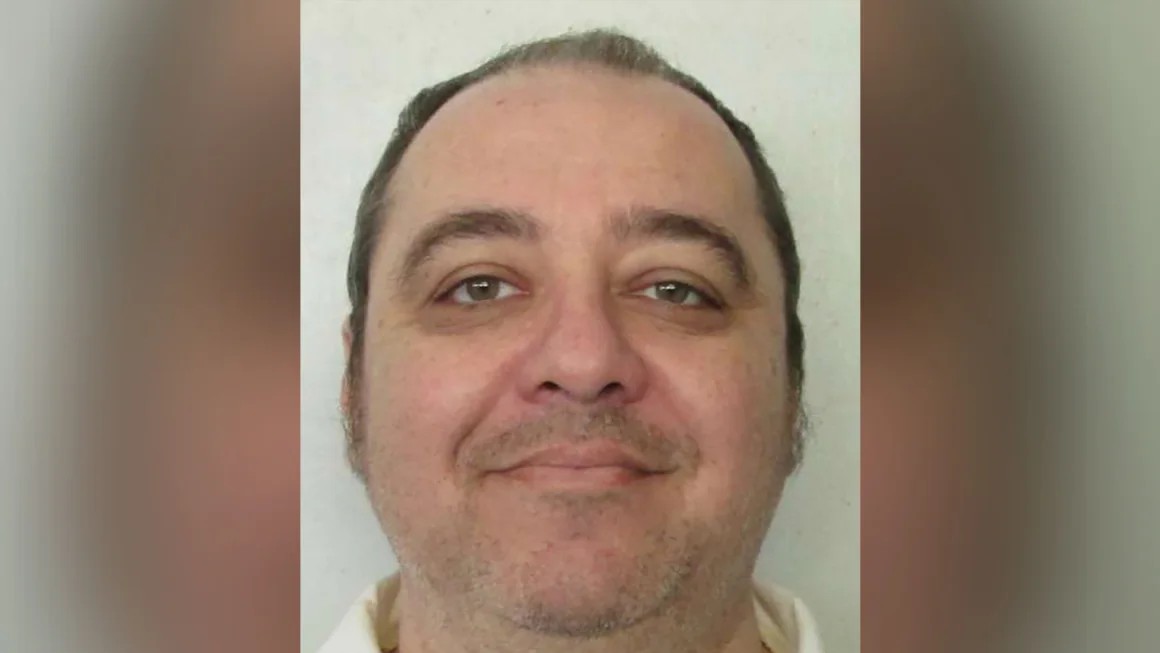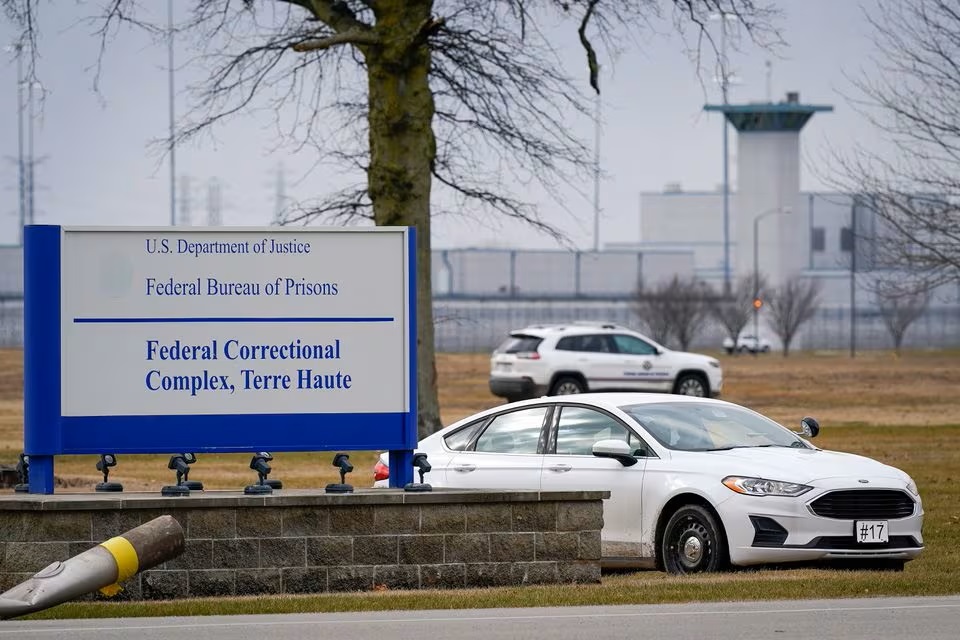2024-01-25 HUMAN RIGHTS 51

The US Supreme Court on Wednesday declined to halt the execution of Alabama death row inmate Kenneth Smith, who is scheduled to be put to death this week using nitrogen gas – a wholly new method some experts have decried as veiled in secrecy amid concerns it could lead to excessive pain or even torture.
Smith is due to be executed during a 30-hour window starting Thursday for his part in a 1988 murder for hire. The state 14 months ago aborted an effort to execute him by lethal injection because officials could not set an intravenous line before the execution warrant expired.
Smith and his attorneys last week asked the Supreme Court to pause the execution so they could argue trying to execute Smith a second time would amount to cruel and unusual punishment, violating the Eighth and 14th amendments.
On Wednesday, the justices declined Smith’s requests. They did not provide an explanation in their brief order, and there were no noted dissents.
Still, litigation continues ahead of Smith’s scheduled execution by nitrogen hypoxia, a method only Alabama, Oklahoma and Mississippi have approved and none has used; only Alabama, which adopted the method in 2018, has outlined a protocol for it, indicating officials plan to deliver the nitrogen to Smith through a mask.
Smith’s lawyers had also filed a separate appeal with the US Court of Appeals for the Eleventh Circuit on Wednesday — that court also declined to halt Smith’s execution Wednesday night, saying “Smith has failed to show a substantial likelihood of success on the merits of his claims.”
“Accordingly, his motion for a stay of execution is due to be denied without regard to the other prerequisites for the issuance of the same,” said the court in its ruling.
In the request to the Eleventh Circuit Court of Appeals, Smith’s attorneys said Alabama altered its execution plans by changing the schedule for Smith to have his last meal.
That change was made, the attorneys said, in response to evidence that Smith “has been vomiting repeatedly” — one of several concerns previously raised by Smith and the state’s critics, who fear Smith could vomit into the mask, causing him to choke and raising the risk of a tortuous death.
“While there is no doubt that a stay of execution is the exception and not the rule, it is difficult to imagine a more exceptional case than one in which a State intends to employ a novel protocol for a never-before-used method of execution, using a plan that continues to shift less than 48 hours before the execution is scheduled to begin,” the attorneys wrote.
In response, the state said the evidence Smith had been vomiting was largely from his own self-reporting. The Department of Corrections, the state said, only altered the last meal schedule to alleviate Smith’s concerns.
The state urged the court to deny the request for a stay, saying Smith’s “recent delays and latest filing make a mockery of the judicial process.”
Responding to the appeals court’s decision to deny the stay, Alabama Attorney General Steve Marshall said, “While Smith will likely appeal to the U.S. Supreme Court, my office stands ready to carry on the fight for Liz Sennett. Two courts have now rejected Smith’s claims. I remain confident that the Supreme Court will come down on the side of justice, and that Smith’s execution will be carried out tomorrow.”
During the November 2022 attempt to execute him, officials “jabbed Mr. Smith repeatedly in his arms and hands” in an effort to access his veins, causing the inmate “severe physical pain and psychological torment, including post-traumatic stress disorder,” his lawyers wrote in their appeal to the Supreme Court.
Smith’s execution would mark only the second time in US history that a state would attempt to execute an inmate a second time after initially failing, they said.
The state opposed Smith’s appeal, pointing out this week in a filing with the Supreme Court it would use a different method this time and describing nitrogen hypoxia as “perhaps the most humane method of execution ever devised.”
“Such treatment is much better than Smith gave Elizabeth Sennett nearly thirty-six years ago,” Alabama wrote, referring to the victim in the 1988 case.
United Nations experts, however, have “expressed alarm” over Smith’s looming execution, saying this month in a news release, “We are concerned that nitrogen hypoxia would result in a painful and humiliating death.” The UN High Commissioner for Human Rights called on Alabama to halt the execution, saying it “could amount to torture or other cruel, inhuman or degrading treatment or punishment under international human rights law.”
“It’s not that nitrogen gas won’t kill you,” Dr. Joel Zivot, an associate professor of anesthesiology and surgery at Emory University, told CNN. “But will it kill you in a way that would comport with the constitutional requirement that it not be cruel and it not be torture?”
Smith was sentenced to death for his role in the 1988 murder for hire of Sennett. Her husband, minister Charles Sennett, hired someone who hired two others, including Smith, to kill his wife and make it look like a burglary for $1,000 each, according to court records.
Sennett, who court records say was having an affair and had taken out an insurance policy on his wife, killed himself a week after her murder as investigators’ focus turned to him. Smith was eventually arrested after investigators searched his home and found the Sennetts’ VCR, which he’d taken in the course of the killing.
Previous article:no more
Next article:64K women and girls became pregnant due to rape in states with abortion bans, study estimates

1,000 Gaza protesters rally in Hollywood ahead of Oscars, blocking traffic

Joe Biden, Donald Trump clashing visits thrust border fight further into spotlight

San Francisco apologizes to Black residents for decades of racist policies

Vigils held across US for 'bullied' non-binary student Nex Benedict who died after school fight







